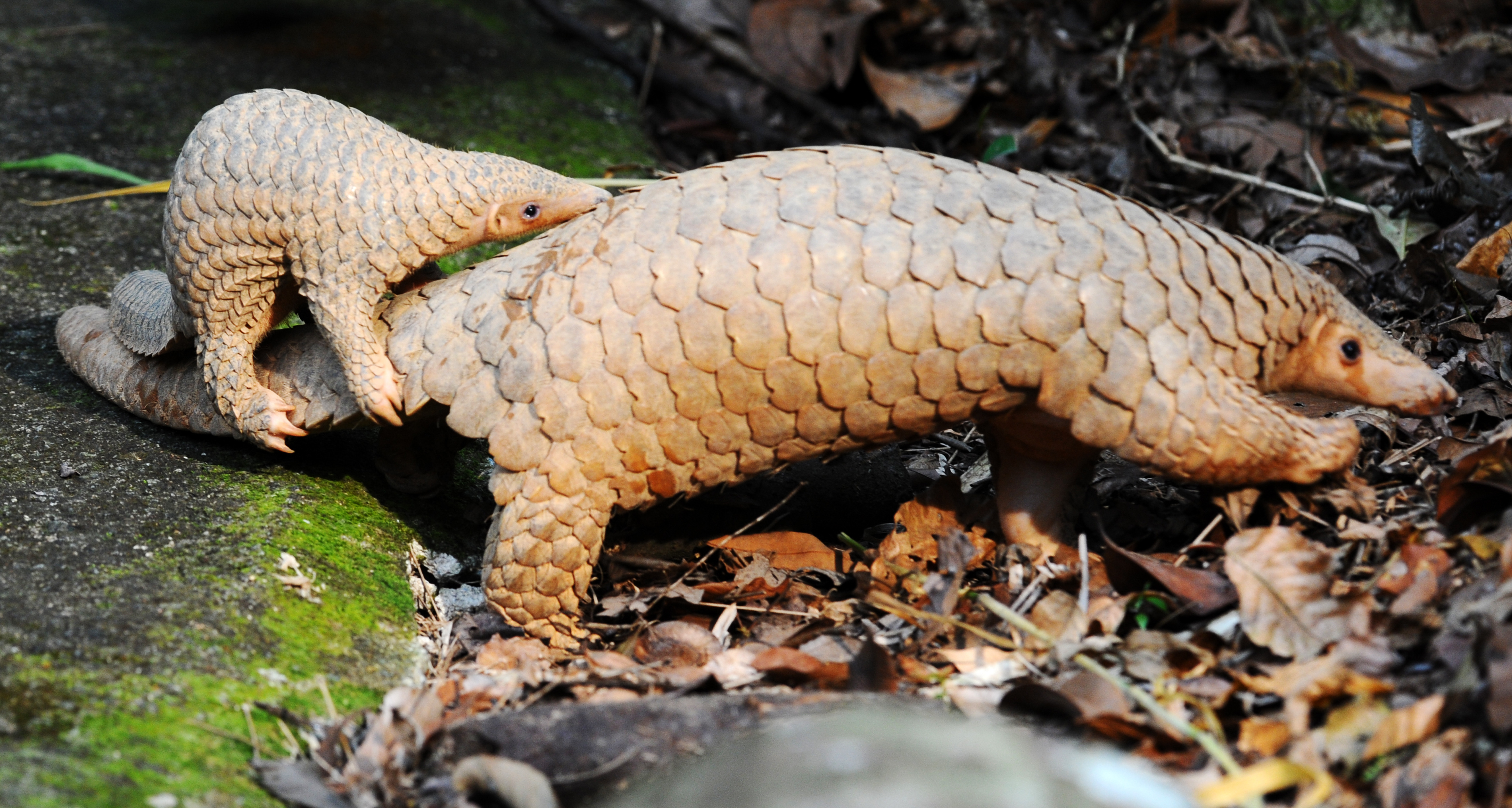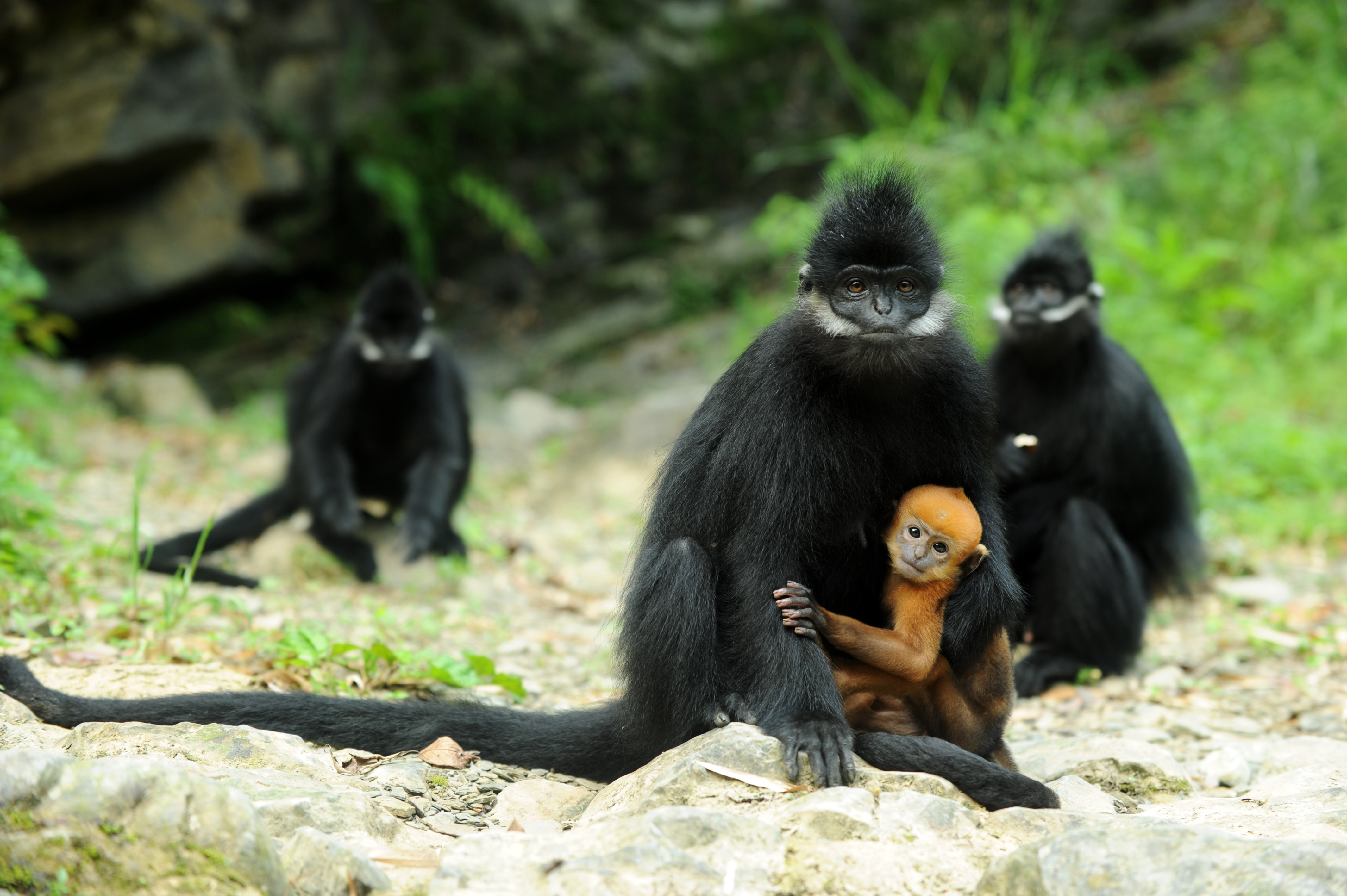
File photo of a baby Sunda pangolin and its mother (Xinhua/Then Chih Wey)
Market stalls, shops and restaurants selling wild animals will be closed and sealed up, while all online information or advertisements related to illegal wildlife trade will be removed, said a guideline released by China's forestry authority.
BEIJING, Feb. 28 (Xinhua) -- China's forestry and grassland authority has moved to strengthen the protection of wild animals, as part of the efforts to implement the country's new decision on thoroughly banning the illegal trading of wildlife.
Authorities at all levels should pool resources to comprehensively strengthen wildlife protection in important distribution areas and habitats of wild animals, according to a guideline released by the National Forestry and Grassland Administration.
Market stalls, shops and restaurants selling wild animals will be closed and sealed up in accordance with the law, while all online information or advertisements related to illegal wildlife trade will be removed, said the guideline, adding that activities like transporting wild animals and related products will also be strictly punished.

File photo of Francois's langurs, an endangered monkey species, at the Mayang River National Nature Reserve in Yanhe Tujia Autonomous County, southwest China's Guizhou Province (Xinhua/Yang Wenbin)
Authorities should overhaul the institutions breeding and trading wild animals, and impose harsher punishment on violations, according to the guideline.
Beginning on Thursday, the administration halted all administrative licensing applications of activities for purposes of eating wild animals, including hunting, selling, purchasing and importing wild animals.
Besides, strict approval procedures are required for the wild animals that are used for non-edible purposes, such as for scientific research, for drugs and display, the guideline showed.
Earlier this week, China's top legislature adopted a decision on thoroughly banning the illegal trading of wildlife and eliminating the bad habits of eating wild animals to safeguard people's lives and health. ■



